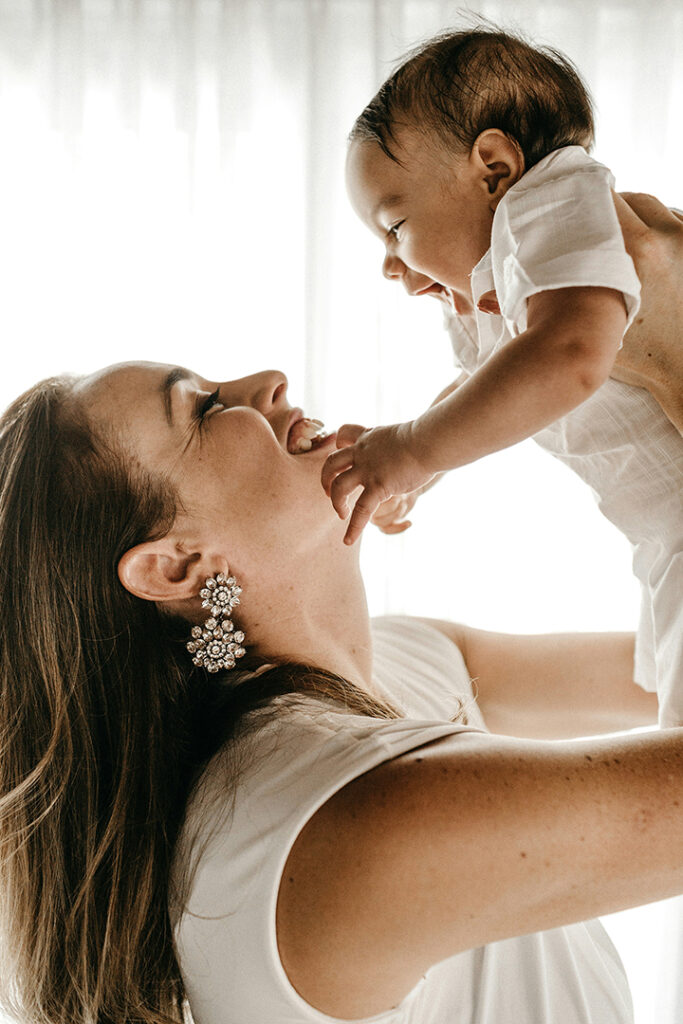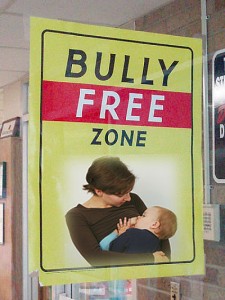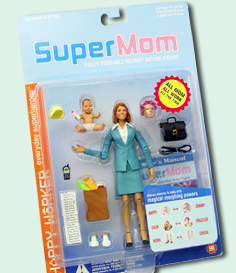Archive for the ‘Parenting for Peace’ Category
 I write a lot about the central role of healthy attachment for child wellbeing. But what IS attachment and how do you get it?? It can be easy for someone like me who is steeped daily in the topic to take it for granted that people know what we mean when we say “attachment.” And as developmental psychologist author Gordon Neufeld has pointed out, attachment is not an intuitive word — in other words a word whose meaning is naturally and easily understood.
I write a lot about the central role of healthy attachment for child wellbeing. But what IS attachment and how do you get it?? It can be easy for someone like me who is steeped daily in the topic to take it for granted that people know what we mean when we say “attachment.” And as developmental psychologist author Gordon Neufeld has pointed out, attachment is not an intuitive word — in other words a word whose meaning is naturally and easily understood.
Author of an excellent book on attachment, Hold On to Your Kids, Neufeld points out that the word attachment was invented as a way to have a term to unify a science around. (The scientific study of attachment began in the 1950s with John Bowlby’s landmark work.) To further complicate our popular understanding of the concept, the term “attachment parenting” was copyrighted by William Sears. “So,” notes Neufeld, “now people know it as associated with a particular organization and particular strategies.” (Neufeld avoids using the term.) (more…)
Tags: attachment, attachment neurobiology, attachment parenting, Gordon Neufeld, interpersonal neurobiology, Mary Ainsworth, relationship
Posted in Parenting for Peace | No Comments »
 How perfect that October is Bullying Prevention Month and Attachment Parenting month — since healthy attachment is the first best anti-bullying program! Healthy attachment is the wellspring optimal brain development, especially the social brain circuitry that governs such anti-bullying capacities as self-regulation, empathy, trust, emotional and cognitive flexibility, and imagination.
How perfect that October is Bullying Prevention Month and Attachment Parenting month — since healthy attachment is the first best anti-bullying program! Healthy attachment is the wellspring optimal brain development, especially the social brain circuitry that governs such anti-bullying capacities as self-regulation, empathy, trust, emotional and cognitive flexibility, and imagination.
As I’ve written about in a prior post about the origins of empathy, my opinion (in agreement with many others) is that even the very best school-based anti-bullying or conflict resolution program puts the change lever in the wrong place — that is, way too far down a child’s developmental timeline: (more…)
Tags: attachment, attachment neurobiology, Attachment Parenting Month, brain development, Bruce Perry, Bullying Prevention Month, empathy, Jamie Lynne Grumet, pleasure, sociopathy, violence
Posted in Parenting for Peace | No Comments »
I’m going to try and keep this post short and to-the-point. A handy toolkit to ease the stress of mothering, regardless of the “brand” of mothering (working, stay-at-home, by fathers, you name it). This is a summary of the gems that emerged from my appearance this week with Mallika Chopra and Sarah Ripard at the California Women’s Conference. The audience loved what we shared, so I wanted to share it more widely.
 First, why do so many of us tend towards feeling overwhelmed with the stress of mothering these days? Since humans are by nature meaning-making creatures, it helps a great deal to shine a light of context on any problem. In this case it helps us to not feel crazy, or incompetent, or alone in our suffering!
First, why do so many of us tend towards feeling overwhelmed with the stress of mothering these days? Since humans are by nature meaning-making creatures, it helps a great deal to shine a light of context on any problem. In this case it helps us to not feel crazy, or incompetent, or alone in our suffering!
Here are The Big Three as I call them: overarching reasons for what seems like an epidemic of anxiety that thrums at the heart of parenting: (more…)
Tags: anxiety, California Women's Conference, discipline, information overload, parent confidence, stress
Posted in events, Parenting for Peace | No Comments »
I talk a lot in my lectures and coaching sessions about the child’s need for our calm, loving authority as parents. Let me clarify loud and clear that I mean authoritative parenting, not authoritarian parenting! In the authoritarian style of parenting, children’s unquestioning obedience is the goal — a short-sighted approach on every level, including optimally healthy development of the child’s social brain, which is the polestar of parenting for peace.
 Authoritative parenting takes a longer view and is marked by the parents’ decisive yet respectful leadership role and their focus on connection, and builds an ever-deepening bond of loving trust between them and their children. It features the parent as a calm, loving authority figure who is grounded in his or her life, which is not balanced on the child as its fulcrum. (more…)
Authoritative parenting takes a longer view and is marked by the parents’ decisive yet respectful leadership role and their focus on connection, and builds an ever-deepening bond of loving trust between them and their children. It features the parent as a calm, loving authority figure who is grounded in his or her life, which is not balanced on the child as its fulcrum. (more…)
Tags: authoritarian parenting, authoritative parenting, child-centered, discipline, negotiating, shame, social brain
Posted in Parenting for Peace | No Comments »
Parenting for Peace
 Make no mistake: mothers can change the world. And now is the time for us to realize it. Through recognizing our true nature and innate power, together with the shaping impact of how we bring children to life and to maturity, we can wield timely and imperative healing change.
Make no mistake: mothers can change the world. And now is the time for us to realize it. Through recognizing our true nature and innate power, together with the shaping impact of how we bring children to life and to maturity, we can wield timely and imperative healing change.
The Dalai Lama said at the Vancouver Peace Summit that the world will be saved be the western woman. In the midst of our global human, economic and environmental crises, we have been overlooking a powerful — perhaps the most powerful — means of changing the world toward more peace and prosperity: the consciousness with which we bring our children to life and shepherd them into adulthood. (more…)
Tags: brain development, imagination, intellegence, interpersonal neurobiology, parenting for peace, peace, self-regulation
Posted in Parenting for Peace | No Comments »
 I’m picking up the thread from my last post, about how too much information and too many choices contribute to Supermom feeling overwhelmed rather than sane and centered. In an era when the world generates more information in 48 hours than it did through all of human history up until 2003 (!!), I’d like us to consider the possibility that our sophisticated technology and information-gathering prowess might have had a direct evolutionary purpose — and I’m not referring to us evolving into 24/7 extensions of our iTwitterFaceLinkInPod cyber-screens. (In fact, that is a direct contributor to our stress…but that’s another post. Keep an eye out for that, coming soon!)
I’m picking up the thread from my last post, about how too much information and too many choices contribute to Supermom feeling overwhelmed rather than sane and centered. In an era when the world generates more information in 48 hours than it did through all of human history up until 2003 (!!), I’d like us to consider the possibility that our sophisticated technology and information-gathering prowess might have had a direct evolutionary purpose — and I’m not referring to us evolving into 24/7 extensions of our iTwitterFaceLinkInPod cyber-screens. (In fact, that is a direct contributor to our stress…but that’s another post. Keep an eye out for that, coming soon!)
Putting This SuperPickle Into Perspective
It’s no wonder we haven’t yet gotten this parenting thing right as a human race. (more…)
Tags: California Women's Conference, feminism, information overload, supermom, technology, women's movement
Posted in Parenting for Peace | No Comments »
 It seems epidemic these days: an undercurrent of anxiety thrums at the heart of parenting. Do you perpetually feel like you’re a just a little behind the 8-ball, missing some crucial opportunity that’s going to put your child behind? Yikes, we didn’t play Mozart through speakers on our pregnant belly, we didn’t use the latest pre-reading iPad app, we didn’t get in on that whiz-bang college-prep (or high-school prep, or for that matter, pre-school prep) program!
It seems epidemic these days: an undercurrent of anxiety thrums at the heart of parenting. Do you perpetually feel like you’re a just a little behind the 8-ball, missing some crucial opportunity that’s going to put your child behind? Yikes, we didn’t play Mozart through speakers on our pregnant belly, we didn’t use the latest pre-reading iPad app, we didn’t get in on that whiz-bang college-prep (or high-school prep, or for that matter, pre-school prep) program!
If this rings a bell, I feel nothing but compassion for you. We’ve all been conditioned to jump (or get jumpy) when the endless smorgasbord of choices glistens before us, beckoning with a glut of possibilities for that perfect something that will fill in the gaps of our insufficiency. (more…)
Tags: calm authority, information overwhelm, parent confidence, parental anxiety, stress, supermom
Posted in events, Parenting for Peace | No Comments »
 When talking to children about tragic events, understanding individual temperament can be a great help. In my earlier 9/11 post, I focused mainly on two important aspects for the parent:
When talking to children about tragic events, understanding individual temperament can be a great help. In my earlier 9/11 post, I focused mainly on two important aspects for the parent:
- the fundamental need for some measure of self-possession and calm amidst outer events
- a level of honesty and clarity in speaking to the child about the events that is not the norm in our culture
Especially related to that second point — honesty and clarity for the child — I want to dive a bit deeper and look at the importance of knowing your individual child, and letting that understanding guide you with more specificity and nuance when navigating the delicate territory of tragedy with them. {Read the rest of this post at mothering.com}
Image by:
obbino (Flickr / Creative Commons)
Tags: talking to children, temperaments, tragic events, trauma
Posted in Parenting for Peace | No Comments »
 Eleven years since 9/11.
Eleven years since 9/11.
Eleven years ago last night, our daughter Eve — then ten years old — was so excited that the next morning she was going to wake up by herself for the very first time, using the radio alarm clock we had given her for the occasion. She chose the station carefully (classical was it? maybe soft pop?), but when the radio clicked on at six a.m. in her Los Angeles bedroom it wasn’t music that woke her up. The second plane had just hit its target. Nobody yet had clarity on what was happening, let alone the news media. A fragmented noise skein of unfathomable facts, disbelief, sorrow, and fear came out of the radio that morning. {Read the rest of this post at mothering.com}
Tags: 9/11, fear, honesty, reassurance, tragedy, trust
Posted in Parenting for Peace | No Comments »
 Embracing the Flow
Embracing the Flow
by Stephanie Evans Hanson
• Hello. My name is Stephanie, and I am a “Present Past Perfectionist.” Admission is the first step, right? Left unchecked, this is how my brain typically works: I wake up each morning with a to do list in my head, constantly thinking about the next item I need to complete. I move through the day accomplishing one task after the other, trying to keep up with the daily chores that I have to do, as well as the projects that I invent for myself. (more…)
Tags: anxiety, overachiever, perfectionism
Posted in Parenting for Peace | No Comments »
 I write a lot about the central role of healthy attachment for child wellbeing. But what IS attachment and how do you get it?? It can be easy for someone like me who is steeped daily in the topic to take it for granted that people know what we mean when we say “attachment.” And as developmental psychologist author Gordon Neufeld has pointed out, attachment is not an intuitive word — in other words a word whose meaning is naturally and easily understood.
I write a lot about the central role of healthy attachment for child wellbeing. But what IS attachment and how do you get it?? It can be easy for someone like me who is steeped daily in the topic to take it for granted that people know what we mean when we say “attachment.” And as developmental psychologist author Gordon Neufeld has pointed out, attachment is not an intuitive word — in other words a word whose meaning is naturally and easily understood. How perfect that October is Bullying Prevention Month and Attachment Parenting month — since healthy attachment is the first best anti-bullying program! Healthy attachment is the wellspring optimal brain development, especially the social brain circuitry that governs such anti-bullying capacities as self-regulation, empathy, trust, emotional and cognitive flexibility, and imagination.
How perfect that October is Bullying Prevention Month and Attachment Parenting month — since healthy attachment is the first best anti-bullying program! Healthy attachment is the wellspring optimal brain development, especially the social brain circuitry that governs such anti-bullying capacities as self-regulation, empathy, trust, emotional and cognitive flexibility, and imagination. First, why do so many of us tend towards feeling overwhelmed with the stress of mothering these days? Since humans are by nature meaning-making creatures, it helps a great deal to shine a light of context on any problem. In this case it helps us to not feel crazy, or incompetent, or alone in our suffering!
First, why do so many of us tend towards feeling overwhelmed with the stress of mothering these days? Since humans are by nature meaning-making creatures, it helps a great deal to shine a light of context on any problem. In this case it helps us to not feel crazy, or incompetent, or alone in our suffering! Authoritative parenting takes a longer view and is marked by the parents’ decisive yet respectful leadership role and their focus on connection, and builds an ever-deepening bond of loving trust between them and their children. It features the parent as a calm, loving authority figure who is grounded in his or her life, which is not balanced on the child as its fulcrum.
Authoritative parenting takes a longer view and is marked by the parents’ decisive yet respectful leadership role and their focus on connection, and builds an ever-deepening bond of loving trust between them and their children. It features the parent as a calm, loving authority figure who is grounded in his or her life, which is not balanced on the child as its fulcrum.  Make no mistake: mothers can change the world. And now is the time for us to realize it. Through recognizing our true nature and innate power, together with the shaping impact of how we bring children to life and to maturity, we can wield timely and imperative healing change.
Make no mistake: mothers can change the world. And now is the time for us to realize it. Through recognizing our true nature and innate power, together with the shaping impact of how we bring children to life and to maturity, we can wield timely and imperative healing change.
 When talking to children about tragic events, understanding individual temperament can be a great help. In
When talking to children about tragic events, understanding individual temperament can be a great help. In 
 Embracing the Flow
Embracing the Flow

